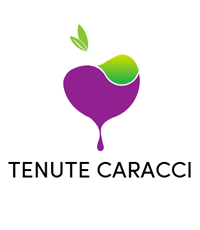Wine
How to Properly Store Wine: Tips and Tricks
Wine is not just a drink — it’s a true sensory journey that tells the story of a land, a vintage, and the people who produced it. However, to fully appreciate its qualities, it’s essential to know how to store it correctly. Poor storage can irreparably compromise the aromas, flavors, and structure of even the finest wine. In this article, we’ll explore the key steps to ensure your wine keeps its quality and offers a perfect tasting experience.
Why Proper Wine Storage Matters
Many believe that wine, once bottled, is safe and destined to improve over time. In reality, not all wines are meant to age, and even those that are require specific conditions to evolve properly. Temperature, humidity, light, and bottle position are crucial factors. Incorrect management can lead to oxidation, aroma loss, or even defects like cork taint.
Temperature: The Key Factor
The golden rule is consistency. Fluctuations in temperature speed up aging and can damage wine irreversibly. The ideal storage temperature is between 10°C and 14°C. White wines and sparkling wines are best kept slightly cooler (10–12°C), while reds can go up to 14–16°C. Avoid exceeding 20°C, as higher temperatures can rapidly spoil the wine.
Humidity: The Cork’s Best Friend
Optimal humidity should stay between 60% and 80%. Too little humidity can cause corks to dry out, letting air in and oxidizing the wine. Too much humidity may damage labels and promote mold growth, though the wine itself usually remains safe. If you lack a natural cellar, a humidifier or dehumidifier can help maintain proper conditions.
Avoid Direct Light
Light — especially sunlight — is a silent enemy of wine. UV rays accelerate aging and alter aromatic compounds, creating unpleasant flavors. That’s why bottles are usually dark-colored: to protect the contents. Store wine in a dark, cool place away from windows or bright light sources.
Bottle Position Matters
Wines with natural corks should be stored horizontally so the cork stays moist and airtight. Bottles with screw caps or synthetic closures can be stored either horizontally or vertically, as they don’t risk cork drying.
Keep Away from Odors and Vibrations
Wine can absorb strong smells from the surrounding environment, especially through cork closures. Avoid storing it near detergents, chemicals, or pungent foods. Vibrations from appliances or machinery can also disturb the aging process — the ideal environment is quiet and still.
Cellar or Wine Fridge?
If you don’t have a natural underground cellar, a wine cooler is an excellent alternative. These appliances maintain constant temperature and humidity, allowing wine enthusiasts to store and age bottles correctly even in an apartment.


